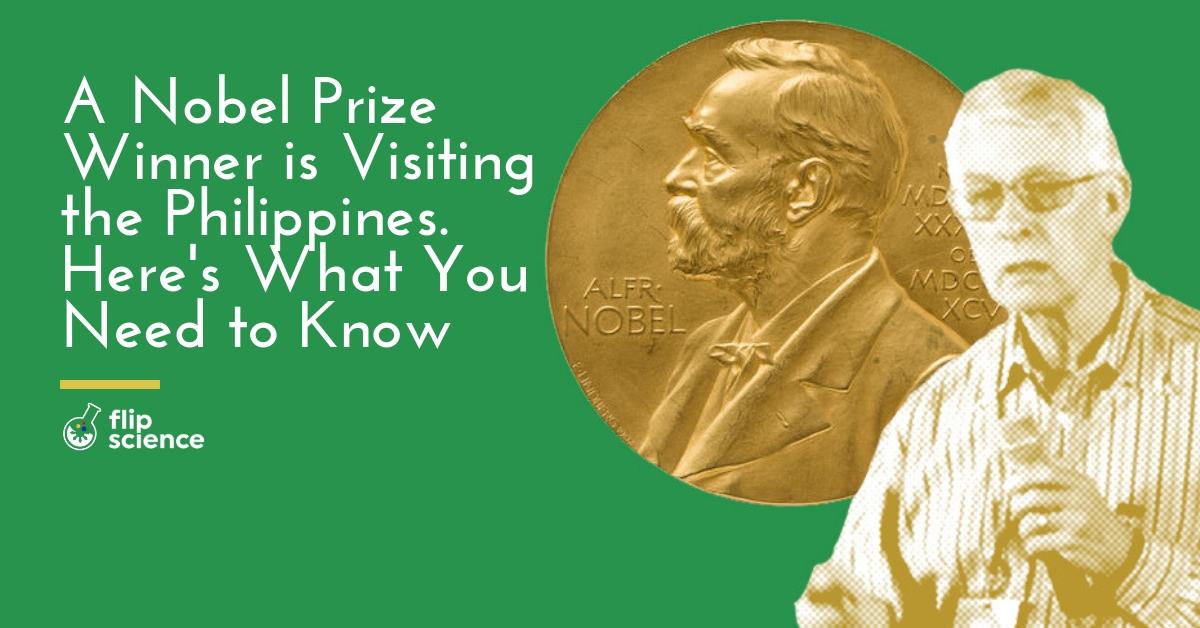To cap off the 14th National Biotechnology Week celebration, Nobel laureate Sir Richard J. Roberts will come to the Philippines to share his insights on genetically modified (GM) foods.
Born and raised in Great Britain, Sir Richard J. Roberts demonstrated a knack for solving math puzzles and logical problems at a very young age. His passion for studying sequences, patterns, and iterations would follow him through his college years, all the way to his career as a biochemist and molecular biologist.
In a way, it’s only fitting that as an adult, he would move on to problems that still involved sequences, albeit on a much larger scale.
Gene genius
Things seemed to happen in rapid sequence for Roberts. From a degree in organic chemistry, he developed a love for biology. Eventually, he became a postdoctoral fellow in Harvard University’s Biological Laboratories and a stay-in guest at Cambridge in 1969. During this time, his knowledge on ribonucleic acid sequencing expanded.
By the time he began working at Cold Spring Harbor Laboratory in New York, he had already developed a new passion: nucleic tide sequences. His grasp of the concept enabled him to find something that only he and one other scientist, Philip A. Sharp of the Massachusetts Institute of Technology (MIT), saw in 1977. Their discovery — split genes — earned both of them the Nobel Prize in Medicine in 1993.
At the time, the concept of split genes dramatically changed the scientific community’s perception of DNA. It also paved the way for further advancements in genetics, such as gene splicing and genetically modified (GM) crops.
And now, in the face of climate change and impending problems in food production, Roberts is taking the lead in campaigning for GMO techniques, as well as quashing the misconceptions and false information surrounding the field.
Dire times
Backed by 131 Nobel laureates, Roberts also aims to reach out to governments and religious leaders alike, in an attempt to establish a widespread education campaign for the public to dispel their fears about GMO with solid scientific evidence.
In addition, he stated that developing countries must start planting crops that are resistant to pests, floods, and drought.
“This is an issue where strong government action will be helpful to the people, especially the poor ones,” affirmed Roberts. “As a start, Golden Rice should be approved as soon as possible. Small farmers should be encouraged and enabled to grow GM crops to improve their productivity and hence their livelihood.”
Roberts also believes that scientific papers should be easily accessible to the public, partly to reduce their reliance on mainstream media.
“[The mainstream media] love to tell a story about something that has happened in science and have a supposed ‘expert’ on the other side, [positioning the debate] as though it were an equal issue,” he said.
“But issues like climate change, GMOs and vaccinations are not equal issues. They are not debatable because the science is solid.”
Roberts is scheduled to appear at the International Symposium on Science, Technology, and Innovation (STI), happening on November 19 at the Philippine International Convention Center (PICC) in Pasay City.
References
- http://www.xinhuanet.com/english/2018-07/01/c_137292615.htm
- https://www.asianscientist.com/2018/10/topnews/richard-roberts-gmo-wildtype-media-1880/
- https://www.forbes.com/sites/kavinsenapathy/2016/09/21/nobel-laureate-sir-richard-roberts-to-ask-religious-and-government-leaders-to-support-gmos/#9d887ad3c7ae
- https://www.mediatheque.lindau-nobel.org/laureates/roberts
- https://www.sciencedirect.com/science/article/pii/0092867494901309
- https://www.straitstimes.com/singapore/climate-change-pushing-the-world-into-hunger
Author: Mikael Angelo Francisco
Bitten by the science writing bug, Mikael has years of writing and editorial experience under his belt. As the editor-in-chief of FlipScience, Mikael has sworn to help make science more fun and interesting for geeky readers and casual audiences alike.







